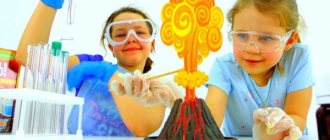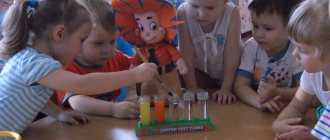Why is self-expression so important for a child?
There are several reasons why you should not neglect the introduction of design and research technologies in preschool educational institutions:
- development of the child’s mental activity, activation of his thought processes;
- quality speech development;
- expanding the range of mental combinations and techniques;
- formation and development of independence, the ability to adapt certain objects for one’s own purposes and to achieve a certain result;
- development of the child’s emotional sphere and his creative abilities.
Thanks to the research carried out, the child himself seeks answers to all his questions. This is a tremendous experience for the child, as well as developing his ability to create, think and express himself.
Principles of student-centered education
Of course, a modern approach to realizing students’ potentials should be based on a system of student-centered education. Thanks to this system, the child develops as a person and at the same time receives the knowledge necessary in the future.
Thanks to the introduction of the theory of research activity into the educational process, the child learns to value finding and independently solving problems and tasks. Personality-oriented interaction is impossible without constructive dialogue between teacher and student. In this interaction, it is very important that the teacher does not simply impose his point of view, leading the student along a well-trodden path, but helps him draw his own conclusions and independently solve problems that arise.
History of the emergence of the research method
The technology of educational and research activities in educational practice has been in demand since ancient times. Ever since humanity began to have a need for learning, people have been thinking about how to optimize and improve this process.
Socrates became the first scientist in human history to introduce research methods into teaching. Much later, Friedrich Adolf Diesterweg, a famous German scientist, recognized that Socrates' methods were the crown of teaching art. The main idea of Socrates is that a bad teacher presents the truth, but a good teacher teaches you to find it yourself.
The technology for the development of research activities was reflected in the works of representatives of educational activities of the eighteenth century. These include such scientists as Feofan Prokopovich, Vasily Nikitich Tatishchev, Ivan Tikhonovich Pososhkov. At the end of the nineteenth century, scientists such as Konstantin Dmitrievich Ushinsky and Lev Nikolaevich Tolstoy made their invaluable contribution to the study of children's research activities.
Definition of research activities and related concepts
Technology of research activity is a section of intellectual and creative activity, the basis of which is search activity and research behavior. It is also an active activity of the child, which is aimed at understanding the cause-and-effect relationships between surrounding phenomena, as well as their ordering and systematization.
You may be interested in: Physical changes in adolescents: boys and girls
A few basics of research:
- Search activity is behavior whose goal is to change the situation or attitude towards it if there is no certain forecast of situational results. At the same time, situational efficiency and effectiveness are constantly monitored.
- Exploratory behavior is actions aimed at studying and searching for new information from the environment.
- Research activity is a normal state of a child, expressed in his desire to study and find out everything. We can say that research activity is a step into the unknown for a child.
The benefits of inquiry teaching
In order to raise the learning process to a qualitatively new level, it is necessary to introduce the technology of research activities into the system of extracurricular and classroom education, the purpose of which is to develop the student’s creative and analytical abilities, taking into account individual characteristics.
Through direct participation in research activities, students begin to realize their belonging and significance in big science, become familiar with the methods of creative and scientific work, develop an interest in knowledge, learn to communicate with peers, and take part in all kinds of research experiments.
Methods and techniques for organizing research activities
Topics of research activities for preschool children:
- Science fiction – topics related to the study of fantastic, non-existent objects and phenomena.
- Empirical – topics that require independent experimentation and observation.
- Theoretical - topics that are focused on organizing work on the study of certain materials and facts, their analysis and generalization.
Rules for choosing a topic for research activities for preschoolers:
- the topic should be interesting to children;
- the topic should be understandable and accessible for children to understand and study;
- the topic must have real benefits for the research participants in terms of their development, education and training;
- the theme requires an element of unusualness and surprise;
- the topic involves relatively quick execution and obtaining the final result.
Methods and techniques for organizing research activities of preschool children:
- heuristic conversation;
- formulation and subsequent solution of a specific problematic issue or situation;
- different types and types of observations;
- modeling situations;
- various experiences;
- recording the results obtained during experiments, observations, experiments and other activities;
- immersion in a problematic situation;
- artistic word;
- gaming activities: different types of games, creative situations, etc.;
- work assignments and actions.


